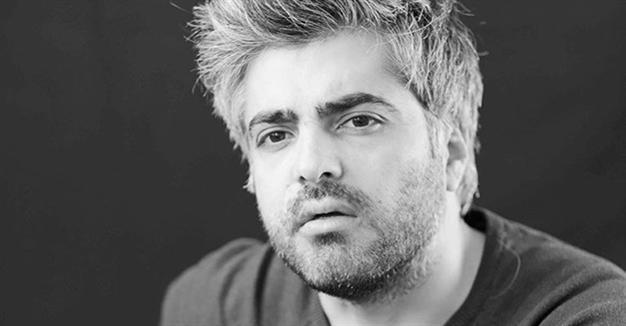Istanbul’s well-educated Syrians join debate on Turkish citizenship
İpek İzci/Aslı Barış – ISTANBUL

Feras Fayyad
Syrians in Istanbul with higher education degrees and income have finally joined in the nationwide citizenship debate, which flared up after President Recep Tayyip Erdoğan controversially said offering Turkish citizenship to some of the country’s nearly 3 million Syrian “guests” was now on the table.
While opposition parties slammed the plan as a manipulation of vulnerable refugees to garner additional votes or to change the country’s demographics, Syrians speaking to daily Hürriyet had diverse opinions on the subject, ranging from supportive to highly critical.
“I found Erdoğan’s remarks generous,” said Feras Fayyad, a 31-year-old film director who “escaped” from the regime of Syrian President Bashar al-Assad three years ago after being arrested twice for participating in mass demonstrations against the Syrian leader.
Underlining that he would like to become a citizen of Turkey – “a strong country” - Fayyad said he would then feel like a Turk and fulfill his responsibilities, like any other citizen.
“Since this would officially be my country, I would serve in the military and pay taxes,” Fayyad told Hürriyet but said things would become more complicated if he had to make a choice between his Syrian citizenship and Turkish citizenship. “I don’t know about that. That is difficult,” Fayyad said, shelving the problem for future consideration.
On the other hand, Samer al-Kadri, a publisher who also escaped from the regime some four years ago after encountering difficulties in publishing books as he wished, dismissed giving up his Syrian citizenship for a Turkish one.
“In the end, Syria is my country and Turkey is not. It is similar, but it is not my country,” said al-Kadri, who founded the Pages Bookstore Café in Istanbul where he now sells Arabic books.
Another Syrian, 32-year-old Rawasal Samman, who has a law degree, criticized how the plan was being debated in Turkey, stuck in the axis of whether Syrians were welcome or not.
“People can say they don’t want us. Our problem is not whether people want us or not. Currently, Syrians are the world’s biggest problem and everyone has a stake in this problem,” Samman said, adding the proper approach was “to face the problem and do what is necessary.”
Samman said he “really wanted” Turkish citizenship and could envision himself building a family in the country – although some other respondents disagreed.
“My family does not want me to build my future in Istanbul because they foresee the secular system here is on shaky ground,” a university graduate who wanted to be identified as M.O. told Hürriyet, while also slamming Erdoğan’s plan as “deceptive.”
M.O. said the plan was a method to manipulate uneducated and religious Syrians and change demographics in southeastern Turkey, where Turks, Kurds, Arabs and Alevis co-exist. She also claimed the ruling Justice and Development Government (AKP) would use Syrians for a shift in the country’s secular system.
“They could have provided [Syrians] equal rights with Turkish citizens, without giving them the right to vote, simply by lifting the geographical limitation,” she said, referring to Turkey’s geographical limitation in the 1951 Refugee Convention which causes Turkey to treat Syrians as “guests” instead of recognizing their rights as refugees.
Another Syrian, Nizar Bitar, who owns a restaurant chain, complained that “even thieves” have more rights than Syrians and said he did not feel safe in Turkey.
“I am searching for where I can go, I want to leave,” Bitar said, criticizing the discriminatory rhetoric often adopted against Syrians.
“70,000 Syrians were martyred in Çanakkale,” he said referring to the western province of Çanakkale, where an important battle was won by Ottoman forces during World War I, “Know that, and then tell us to leave here!”
However, almost all of the respondents agreed in their wishes to not be manipulated for Turkey’s internal political struggles, urging politicians to leave a humanitarian issue out of the political sphere.
“I wish the future of my people was not part of the same sentence as a worry over votes. This disturbs me,” journalist Khalid Eid said, while Bitar pleaded that “neither the government nor the opposition” made use of Syrians.
